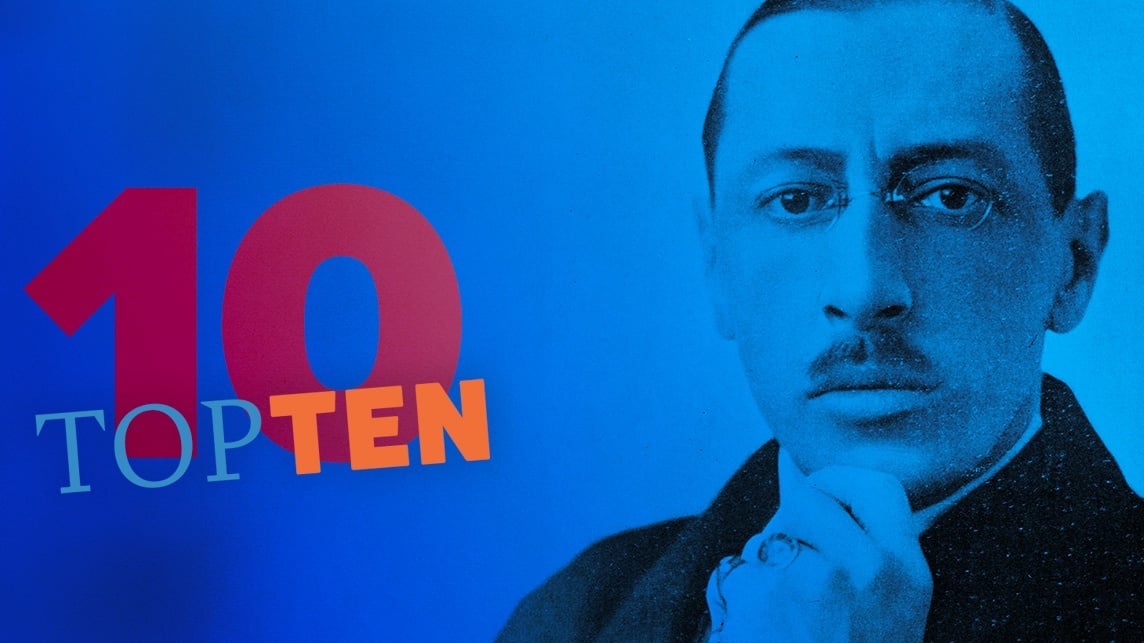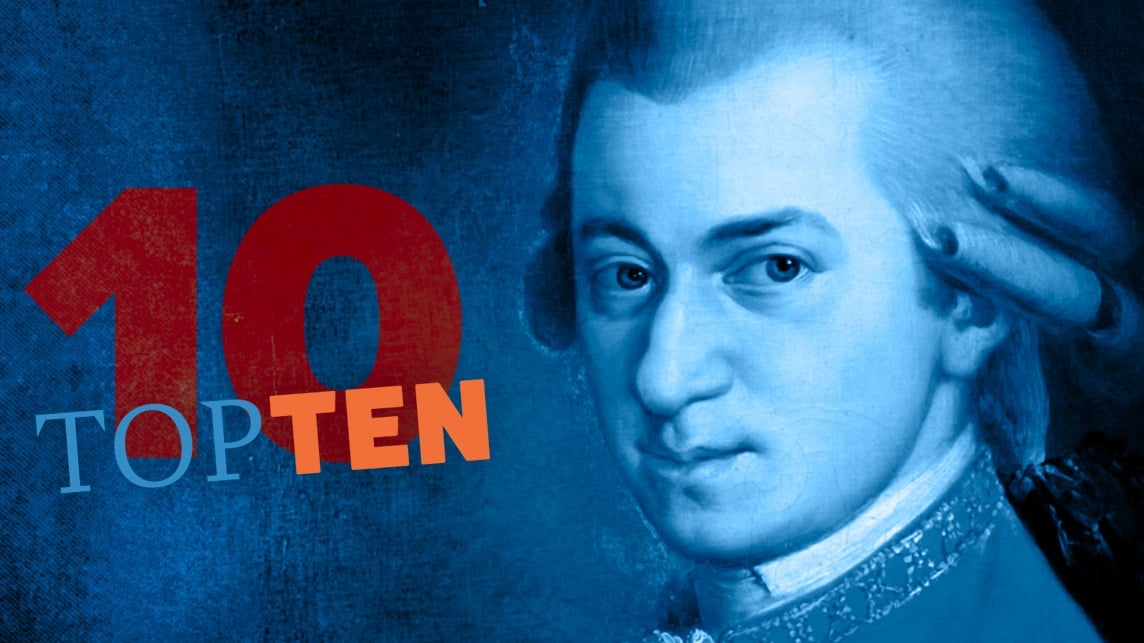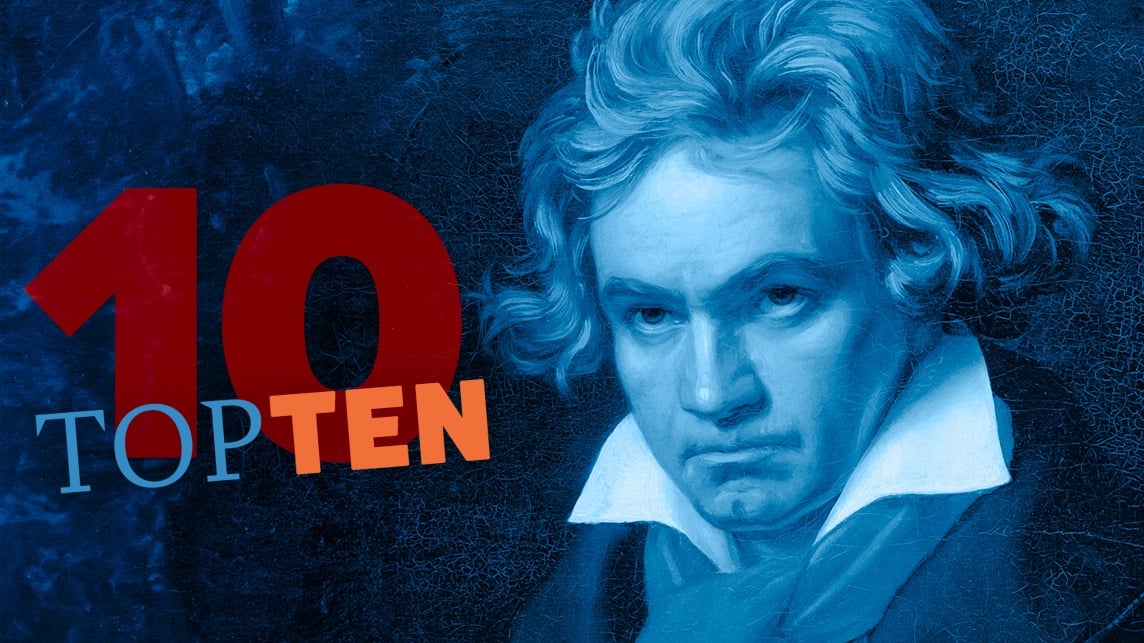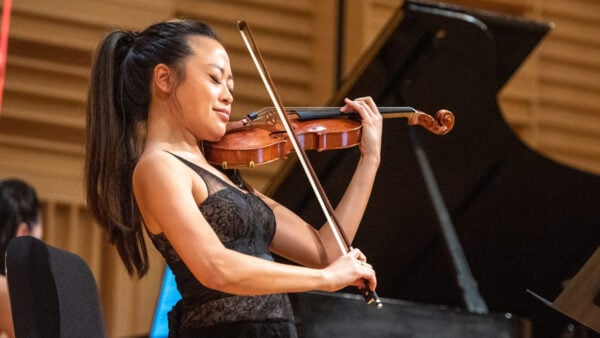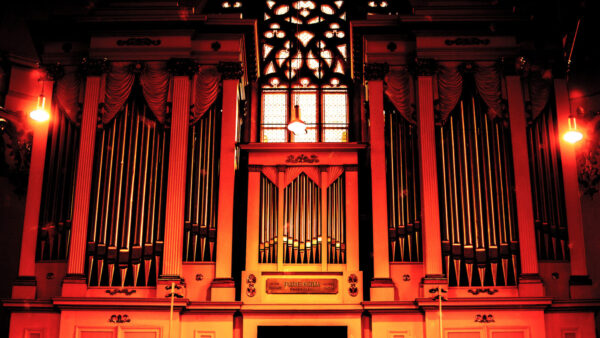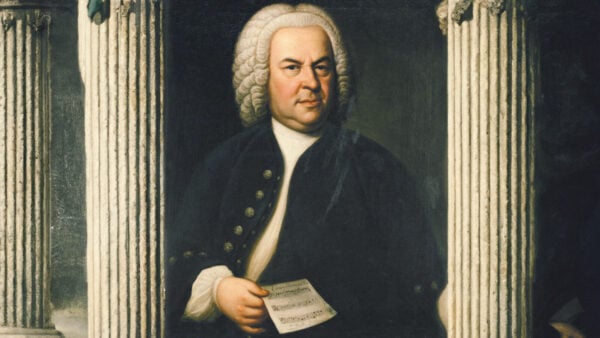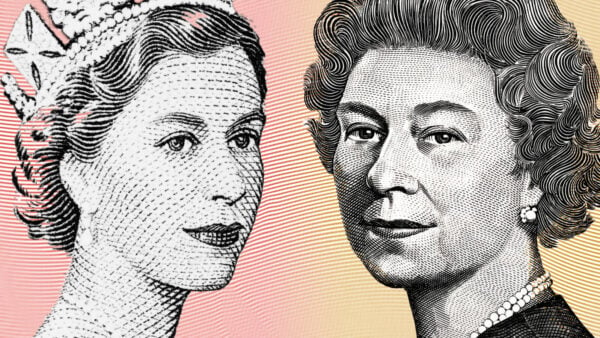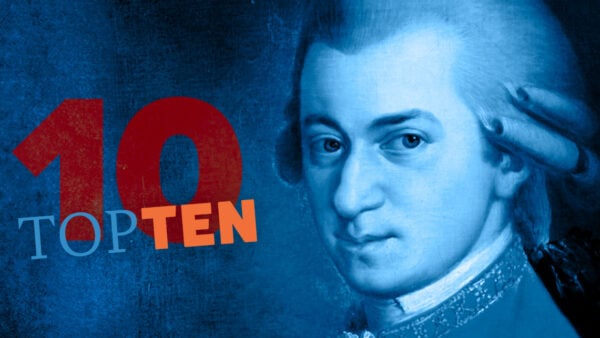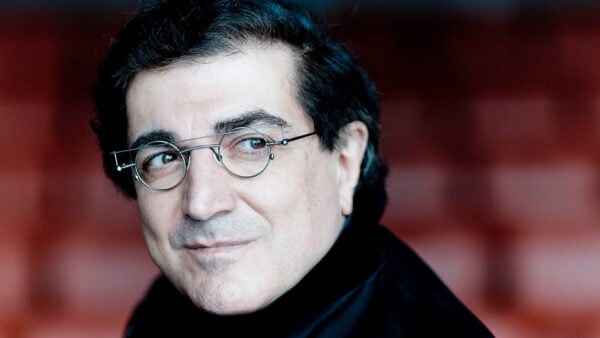 It's time for WFMT's latest Composer Top 10! Previously, we asked the expert hosts and producers at WFMT to vote for the top works of Beethoven and Mozart, and now we are back with a Top 10 for Johann Sebastian Bach!
It's time for WFMT's latest Composer Top 10! Previously, we asked the expert hosts and producers at WFMT to vote for the top works of Beethoven and Mozart, and now we are back with a Top 10 for Johann Sebastian Bach!
Few can reasonably claim to define an entire era of music, but Bach's astonishingly varied output simultaneously epitomizes the Baroque era while also setting the stage for subsequent chapters of classical music history.
We think Tad Hassa, WFMT's music database assistant, said it best: "It all starts with Bach, it's the beginning and the end, laughter and sorrow. When in doubt listen to some Bach, the music will explain everything there is, because everything is in this music."
Oliver Camacho, Music Director says:
My first choice, not because it is the work I want to listen to the most, but because of its comprehensive inclusion of every musical device and every skill, it seems to be the final say on the Baroque period as a whole, as if Bach was saying: "That's it. We're done. Let's move on to the next chapter in music."
Daniel Hautzinger, Digital Content Producer for WTTW says:
Monumental, moving, and lasting.
Cydne Gillard, Producer for Exploring Music, says:
My favorite works of Bach's are inside these bigger works — "Erbarme dich, mein Gott" from St Matthew Passion, "Dona Nobis Pacem" from the B Minor Mass, and the second movement of the Double Violin Concerto in D minor.
Tad Hassa, Music Database Assistant, recommends: Wanda Landowska's recordings of the Goldberg Variations on RCA Victor Red Seal
Keegan Morris, Multimedia Producer says:
It's hard to pick anything other than Glenn Gould's iconoclastic, polarizing recordings. He recorded the full variations twice: first at the beginning of his career and then shortly before his death. What a contrast!
Gould's career-launching 1955 release, his debut recording, is rip-roaring and impetuous. The bookend 1981 release is at times slow — some criticize it as ponderous — and almost mournful. Even for those who don't appreciate Gould's idiosyncratic playing, his career is inextricably linked to the work. In fact, the 1993 film Thirty Two Short Films About Glenn Gould lifts the structure of the 32-part Goldberg Variations to depict the life of its most famous interpreter.
Adela Skowronski, Production Assistant & Digital Contributor, says:
The Well-Tempered Clavier is not only one of Bach's most enjoyable works, but it's also one of the most important works in Western Music History... at least, for pianists! Preludes and Fugues in all major and minor keys? While teaching you about fugues? Come on now. So fantastic.
Daniel Goldberg, Producer, says:
Bach's clever manual on keyboard performance. Without this work, Mozart, Chopin, and Beethoven wouldn't be the same.
Daniel Hautzinger, Digital Content Producer for WTTW, says:
I love it and continually return to it, and so much later piano repertoire flows from it. Stravinsky used to start his day by playing from the Well-Tempered Clavier every morning… I think that's a wonderful practice.>
Robbie Ellis, Producer & Host, says:
Not only are they the foundation for all cello technique, I honestly think those suites are in the DNA of basically every piece for (non-keyboard) solo instrument that came after it. Paganini's caprices, Arban's etudes, Ysaÿe's sonatas, Hailstork's Flute Set... all of them owe a debt to Bach. Plus basically, every instrument has given the cello suites a go.
Daniel Goldberg, Producer, says:
Meditative bliss. I find myself going to these works when I need to escape for a bit.
Robbie Ellis, Producer and Host, says:
They've permeated into our consciousness about as prominently as Vivaldi's Four Seasons.
Daniel Goldberg, Producer, says:
To me, it's hard to imagine classical music without this work. The rhythm, melody, and mathematical formula of this work make it perfect for both the new and experienced listener.
Oliver Camacho, Music Director, says:
The Brandenburg Concertos are another "Best Of Era" collection, giving listeners a tour of the best solo instruments of the 18th century, and providing thrills and inspiration throughout. Who can forget the first time they hear the extended harpsichord solo in No. 5, or the edge-of-your-seat trumpet solo in the finale of No. 2? These concertos individually are welcome listening any time of day, any time of the year. If you are in the audience when they are performed collectively, it means that you have a few hours of feeling very lucky and may leave the concert hall inspired to be better at your skill.
Enjoy the full playlist!
Also receiving votes
Actus tragicus, BWV 106French Suites, BWV 812-817
Harpsichord Concerto in D minor, BWV 1052
Responses have been edited for length and clarity.

